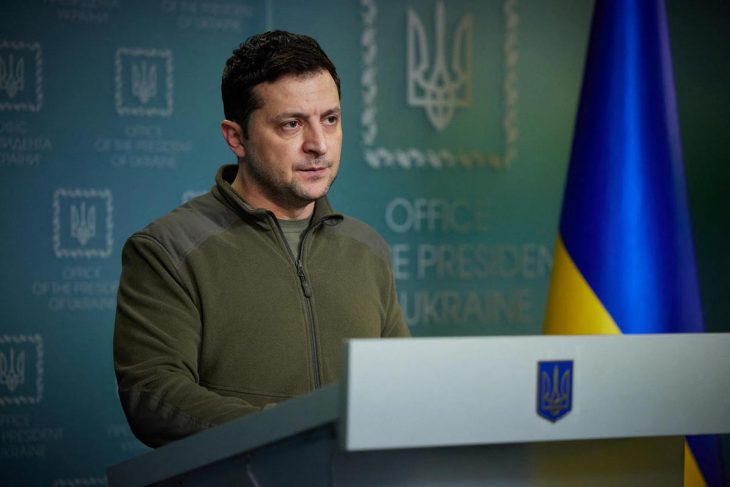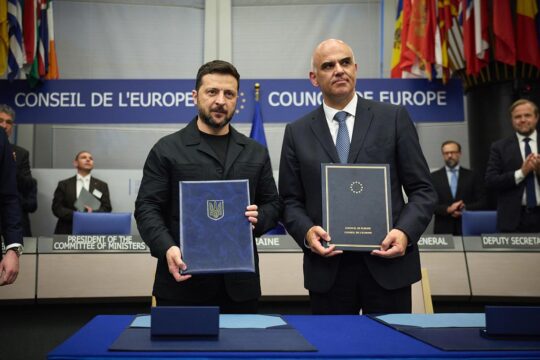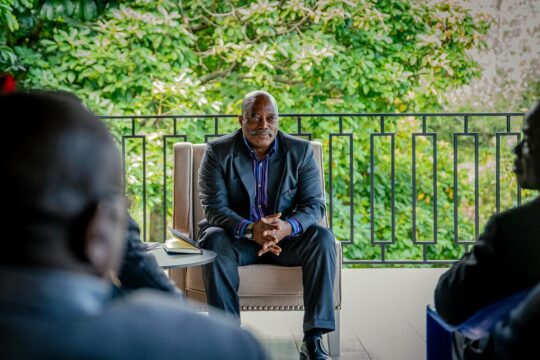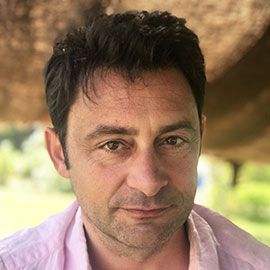JUSTICE INFO: We remember that during the Russian aggression in 2008, Georgia took action before the International Court of Justice (ICJ), the International Criminal Court (ICC) and the European Court of Human Rights (ECHR), and that only the ECHR ended up giving a ruling, many years later. Is this really useful for a state in the situation of Ukraine?
FRÉDÉRIC MÉGRET: I think that there is a historic opportunity to assert the prohibition of the use of force. There are also differences from Georgia, and from the invasion of Crimea in 2014. In Ukraine, it seems that we are indeed in what is, potentially, the invasion of a state as a whole. This new situation implies that we must rise to the occasion and learn from the mistakes of past legal strategies.
The Georgian application was based on the Convention on the Elimination of Racial Discrimination, and the International Court of Justice got away with a procedural dodge. Ukraine, on the other hand, based its application on a separate claim, which is a violation of the Genocide Convention. It suggests that there may be something genocidal about the invasion of Russia, which in itself at this stage does not make much sense. What is interesting, however, is that it says Russia is violating the Genocide Convention by alleging without proof that genocide was committed in eastern Ukraine. This would allow the ICJ to consider the aggression as such.
Why not file a complaint against the aggression directly?
This is because neither Ukraine nor Russia recognizes the ICJ's compulsory jurisdiction. So you have to go looking for so-called arbitration clauses in, if you like, the mess of international law. Ideally, it would have been possible to invoke the United Nations Charter and have a trial on what seems to be the central issue, the commission of a crime of aggression. But one does not always have a choice of tools. The Genocide Convention has the merit of being ratified by both Ukraine and Russia and of opening up a judicial path that would otherwise be lacking.
The ICJ immediately recognized that it has jurisdiction. What can Ukraine hope for?
The ICJ can initially pronounce so-called provisional measures, ordering the parties to cease any action that might impede the resolution of the dispute [as in the case of Myanmar in 2020]. But we must look at the substantive issue at stake. The Ukrainian request is a bit like a defamation suit, in the sense that Ukraine is suing Russia, but the purpose of the suit is partly to defend itself from the accusations. It is Ukraine that will have to prove its innocence.
This would confirm that the justification of the Russian attack is non-existent. The ICJ could also go as far as underlining the prohibition of the use of force in international relations. At best, this will probably not go any further. And no one is under any illusion that this could stop the Russian forces in their tracks. But Ukraine is playing a long-term game and it is a question of reinforcing its legitimacy and being on the right side of the law and history.
On what other legal grounds can Ukraine act?
Aggression is above all a violation of human rights. Of course it is the sovereignty of Ukraine that is violated, but it is also the rights of all Ukrainians.
This human rights angle is powerful. For this, there is the European Convention on Human Rights, thus the possibility of an appeal in Strasbourg, before the European Court of Human Rights. This application has not yet been filed, but there is no reason to believe that Ukraine will not try its luck, especially since it is a plaintiff in no less than four cases already before the ECHR against Russia.
A fundamental question remains very disturbing: In 2022, despite the whole arsenal of international law, is there no possible condemnation if one State invades another?
In reality, the condemnation exists. It is the condemnation of dozens of states that have unanimously and unambiguously condemned Russia's action, and that are expressing a legal judgment. They are subjects and actors of international law, basing their action on the rule of law, speaking out in real time and condemning Russia. This is very important, and it is very effective. The judgment of the peers is immediate and it is without appeal.
It can be seen as a gradation. We start with the judgment of the peers, then come the judgment of the institutions and eventually a full judicial judgment.
But the supreme institution, the United Nations, seems to be blocked.
Certainly in the Security Council. Russia can use, once again, its veto right, which I recall is due to the role that the Soviet Union played in the resistance to the Nazi regime. Its seat in the Security Council was won with great suffering. But using its veto power has a political cost: it shows you as taking advantage of a privilege.
That means one can call on the UN General Assembly, which has jurisdiction over peace and security, especially when the Security Council is paralyzed. It could very well adopt resolutions condemning Russia, and this with stratospheric majorities, which would nevertheless show that there is a central, institutionalized and solemn responsibility, beyond the condemnations of all the foreign ministries.
What can we expect from the UN Human Rights Council, which is meeting this week in Geneva?
In the international system, there is a taboo against attacking another state. What you do at home, even if it is very serious, many look the other way. To attack a sovereign state, however, is to attack a population and somewhere the shield [the state] that allows the protection of human rights on a territory. In this case, it is not certain that the States that normally serve as automatic supporters of Russia are as eager to do so. So yes, we can imagine a condemnation at the Human Rights Council.
If one reads the [1945] Nuremberg judgment carefully, one realizes that the Allies understood that crimes against peace were an inescapable part of the crimes against humanity and war crimes committed by the Germans, that there was a strong correlation between the Reich's project of discrimination and the project of external aggression.
In reality, today, who is on the side of the genocidal logic? Basically, it is Russia, which - by claiming that its Russian-speaking minorities cannot live in peace and security outside Russian sovereignty - has committed itself to a logic of expulsion of Ukrainians in the Donbass and invasion. This is an old logic of the 20th century, strongly correlated with the desire to create ethnically homogeneous states.
Yet the crime of aggression, newly included in the Rome Statute, is not applicable to the situation, according to ICC prosecutor Karim Khan... who has just announced his decision, on Monday 28 February, to open an investigation into the situation in Ukraine.
Yes. There is really nothing to do. Because it is necessary that both states, the attacking state and the state attacked, are parties to the Rome Statute. For other crimes under international law, it is sufficient that the crimes were committed on the territory of a State Party or a State that has recognized the jurisdiction of the Court. This is the case of Ukraine. The conditions are much more restrictive for the crime of aggression than for other crimes.
For other crimes under international law, it is sufficient that the crimes were committed on the territory of a State Party to the Rome Statute or which has recognised the Court's jurisdiction on an ad hoc basis. Ukraine fits the second scenario as it has recognised it twice, in 2014 and 2015, and the second time without time limit. This gives the ICC prosecutor jurisdiction to investigate and prosecute war crimes, crimes against humanity and possibly acts of genocide.
So which jurisdiction could make the most effective decision in this case?
Each one allows you to look at what is going on in a different way. The ICJ is the place to make a high-profile argument about Russia's responsibility for what it is doing. The problem, as we have seen, is that Ukraine is forced to do this through the back door. The International Criminal Court is the place to go for convictions for war crimes and crimes against humanity. It is not [for] aggression. Here there is a risk of focusing on the effects of the use of force, but not on the use of force itself. The European Court of Human Rights is a regional court. We are in a regional story with a whole range of rights that could be violated. If I had to choose, it would be the one to go to.
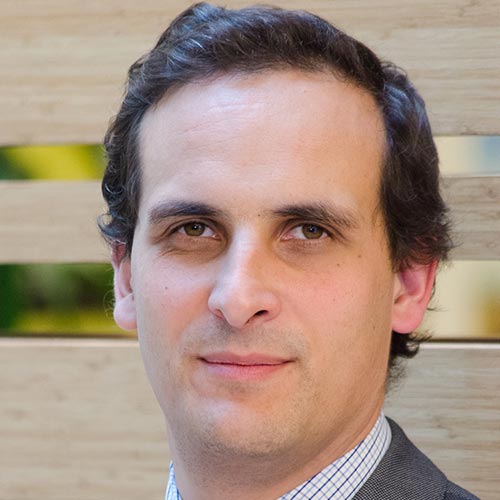
© Lysanne Larose
FRÉDÉRIC MÉGRET
Frédéric Mégret is a full professor and co-director at the Centre for Human Rights and Legal Pluralism and a William William Dawson Scholar at McGill University. His interests lie in international criminal justice, international humanitarian law, international organisations and transitional justice. His work is critical in nature, seeking to uncover what lies behind the project of simultaneously internationalizing and legalizing human rights. He is interested in attempting to “re-imagine” the laws of war with a view in particular to prodding some of the limits of the humanitarian tradition.


